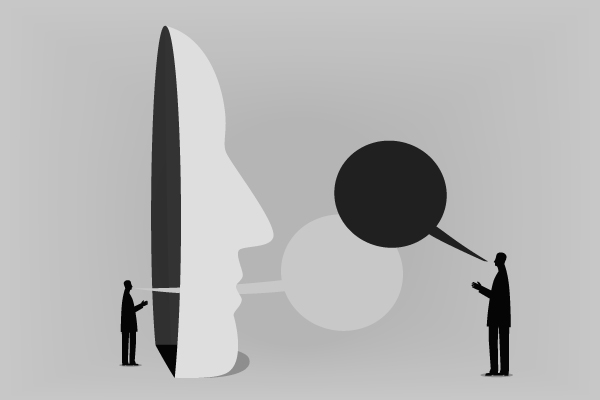Is leadership a solitary role? How connectedness makes us smarter.
Leaders often feel isolated, though they rarely admit to loneliness, impacting their brain health. Explore more about the power of human connection and how it can enhance your cognitive abilities.

I have the treasured privilege to work with leaders who afford me the opportunity to hear their stories. Stories they share with very few other, if any, people in their lives.
As a result, my colleagues and I have been struck by how many leaders recount how isolated they feel. Interestingly, very few ever use the word ‘lonely’. To admit to loneliness somehow seems an admission of weakness. Yet when we reflect the word ‘lonely’ as an observation back to them, we notice the shoulders fall and an exhale of breath as if it’s a revelation.
…in loneliness, one’s inner scream becomes deafening, deadening, severing any thread of connection to other lives.
Wendell Berry
They talk about the impact of the responsibility of the role. People rely on them, the perceived need to have all the answers, the inner drive to succeed, and to try to live up to both their internal and external markers of success. The role is making demands of them that make it difficult (or so they believe) to admit others into their circle; to share hopes and fears and be sounding boards. Some have coaches or mentors, many don’t.
The fact is, a sense of belonging and connectedness is essential for good brain health and the ability to better realise intellectual potential.
Our brains and physiology have evolved to collaborate, cooperate and share our thoughts and feelings. Those early campfire gatherings cemented bonds among our ancestors through shared stories, planning for the hunt, problem solving or gathering resources, and ensured the survival of our species. Our twenty-first century brains still retain those needs.
The latest neuroscience research is providing deeper understanding of why that is. The area of ‘social cognition’, which is a particular process of thinking, is providing some fascinating insights.
There are two parts to social cognition – the psychology of thinking about behaviour, both individual and group, perceiving motives of others, biases (in particular in/out group bias), how social structures affect behaviour, and recognising feelings in oneself and others and their impacts.
The other aspect to social cognition is the biological impact of interaction with others on the body through eye gaze, face perception and mutual attention (or not).
In trusting, loving and close relationships, hormones and neurotransmitters flood the body with the ‘feel good’ hormones. These have the effect of opening up the neural pathways.
When we are isolated, we don’t get that benefit. Instead, we’re in a state of stress, which produces the hormones that prepare our body for physical flight, fight or hiding. That process drains energy from our executive thinking ability – it’s ‘deadened’.
I had the nerdy pleasure of spending some time with Professor Jason Mitchell, a neuroscientist at Harvard University. He told me neuroscientists are calling social cognition ‘sovereign thinking’. In other words, higher order, governing thinking
We’ve had thousands of years of conditioning to believe logic and reason (keep the emotions out of it!) are the highest orders of thinking separating us from the beasts. Now we’re learning we have to question that.
Seeking connection through proximity, eye gaze and attention (getting rid of screens and phones in face-to-face meetings), exchanging ideas … just hanging out with people and dropping one’s need to be logical and right, can actually make you smarter.
Connection is one of the attributes that’s explored in ELEVEN’s world-class executive leadership program.


Comments